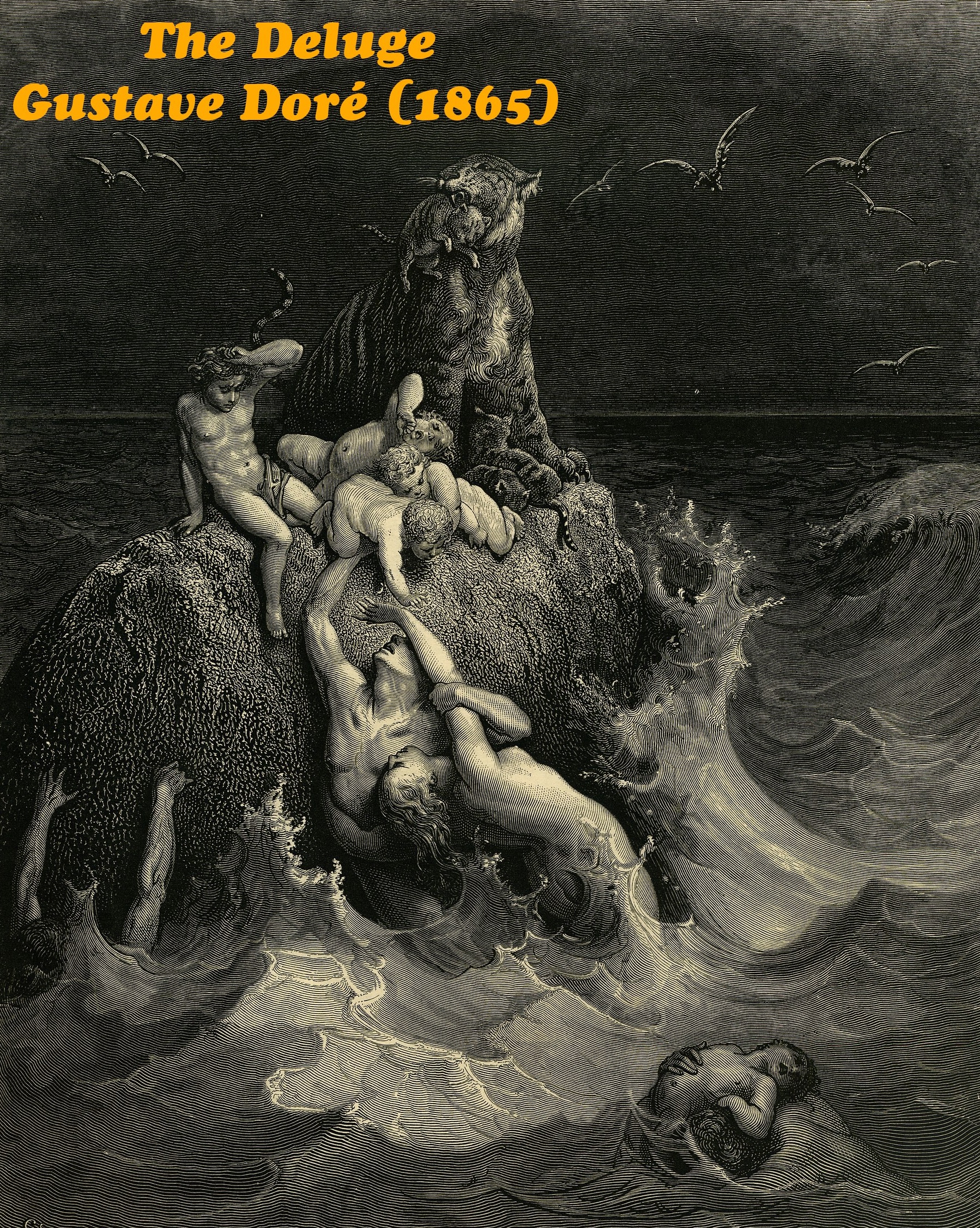What next after the pandemic subsides?
What next after the pandemic subsides?
“Après moi, le deluge” is a phrase attributed to King Louis XV of France speaking to Madame de Pompadeur his chief mistress. It is generally regarded as a nihilistic expression of indifference or perhaps a forecasting of coming ruin. The phrase is also an allusion to the biblical Flood and its consequences, as in the various Genesis primeval histories. Interestingly, speculation regarding this deluge as an actual (if not a literal description) event has concluded that there is an association with a disastrous Black Sea/Mediterranean region flooding episode at the end of the last Ice Age c. 8000 BC when pent-up glacial waters burst through melting ice walls. Such a momentous occurrence may have found its way into folk oral tradition and have been theologised in later written stories as found in Genesis.
Whatever the origins of the expression about le deluge it has a certain resonance with today’s circumstances. The current global pandemic and an accompanying sense of barely concealed despair and inadequacy both national and international has plunged the whole world into a situation not experienced at least since the two World Wars and perhaps a distant memory of the disastrous 1918 Spanish Flu.
One might suppose at this point that the Church in its many manifestations might have something useful to contribute, after all there is plenty of scope to think theologically? In previous ages plagues precipitated apocalyptic scenarios and wild outpourings of bizarre behaviour. At least the latter has not surfaced to any great extent in the churches during the current crisis. Rather manifestations of strange conduct and belief seem to have been restricted largely to politicians and world leaders. Former President Donald Trump in the United States, President Jair Bolsonaro of Brazil and the recently deceased (apparently from COVID-19) President John Magufuli of Tanzania are but three of a number of leaders to deride the causes of the pandemic to the detriment of their people in alarmingly unscientific ways.
At least the Church overall has remained consistent throughout the crisis … obsessed with sexual matters, especially homosexuality, and defensive and reactive over what are coyly termed safeguarding issues, or in other words abuse of minors. Certainly, in the British Anglican environment the various ‘lockdowns’ have seriously damaged church going and congregations, which have been unable to meet for worship. A growing skillset on Zoom and YouTube platforms as used by many clergy has barely compensated for this, although it is possible that a new virtual type of worship could develop and even flourish. This would make for a fairly radical liturgical change as, despite a lively debate in the Letters to the Editor columns of the Church Times and on various blog sites, the Eucharist does not work very well as an online spiritual vehicle. Rather praise worship with a sermon has suited the more Protestant end of the spectrum and better served the new medium.
Overall, no clear new thinking has emerged and what feels like a rather sad, reclusive position for the Church during the past year has prevailed. Consequently, rather like the coming British Brexit trading crisis, currently masked by the effects of the pandemic, serious retrenchment is emerging. We are beginning to see unprecedented redundancies, prospective parish mergers, and a major financial crisis all of which have the potential to cripple ministry in the near future. Apart from the aforementioned continued fascination with sex and sexuality in its various guises the Church that might emerge whenever the pandemic is tamed in is danger of being either a shadow of its former self or even almost unrecognisable.
The Spirit moves in mysterious ways and hope springs eternal, our biblical forebears knew this all too well. However, for the sake of ending where I began, I turn to the maverick philosopher and novelist D. H. Lawrence who also used the expression après le deluge calling it “the tacit utterance of every man” (forgive the absence of inclusive language, it was written in 1920) in his “crisis” of unbearable “loneliness … surrounded by nullity”. He goes on “you mustn’t expect it to wait for your convenience” … “the real deluge lies just ahead of us”.[1]
Nicholas Henderson – Editor Anglicanism.org
Easter 2021
[1] “Latter-Day sinners” from Pansies (1928) in Poems, Volume 1 (Cambridge: Cambridge University Press, 2013), p461

